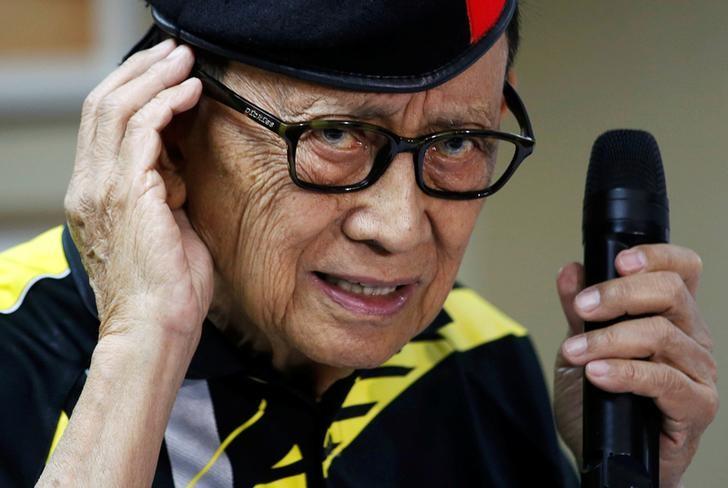Philippine envoy's China trip on hold till "proper time"
A visit to China by a Philippine special envoy tasked with rebuilding tattered ties with Beijing has been cancelled, his aides said on Tuesday, the latest turn in a foreign policy increasingly unpredictable under the new president.
Fidel Ramos, who was president from 1992-1998, would still go to Beijing when the time was right, according to an aide. News of the aborted trip was posted on the website of the Philippines embassy in Beijing.
President Rodrigo Duterte picked 88-year-old statesman Ramos to start a dialogue with China in the wake of a landmark ruling by the Permanent Court of Arbitration (PCA) in the Hague, which invalidated Beijing's claim to most of the South China Sea and put much of the region on edge.
No official announcement had been made about the trip, and it was not immediately clear with whom he had planned to meet.
The aide said Ramos still planned to go to Beijing "at the proper time".
China refuses to recognise the arbitration case. Both sides have pledged to pursue warmer ties, but it remains unclear how they plan to navigate the issues of the ruling, China's man-made islands and its blocking of Filipino fishermen at the disputed Scarborough Shoal.
China claims most of the South China Sea, through which more than $5 trillion of trade moves annually. Brunei, Malaysia, the Philippines, Taiwan and Vietnam have rival claims.
China's Foreign Ministry did not immediately respond to a request for comment.
But a source with direct knowledge of the matter told Reuters the reason for cancelling the trip was because it clashed with Duterte's schedule. He is due to visit Vietnam starting Wednesday evening.
"The president's visit to a number of Asian countries is being arranged," the source added.
Duterte in a speech on Tuesday reiterated his hopes of making China a new friend, along with Russia, and said by next year he will have "entered into so many new alliances".
His rhetorical outreach towards Russia and China was accompanied for a second day by a chiding of longtime treaty ally and former colonial power the United States, which he would not allow to "impose on us anything".
A foreign policy for years aligned with the West looks set for a shakeup following Duterte's near-daily, profanity-riddled rebukes of anyone from the United Nations, Britain and France to the European Union and United States. He has taken aim at those critical of his war on drugs, which has killed about 3,000 people in his three months in office.
A US official said Washington is trying to work as closely as it can with Manila despite Duterte’s public comments.
"He does say a lot of things in public, but we are still full speed ahead on cooperation with the Philippines," said the US official, who spoke on condition of anonymity.
"We’ve gotten no indication from the Philippines that they are done with us, that they want to cut off counter terrorism cooperation, so there is this odd disconnect between what he says publicly and what we see privately," he added.
China too was not spared criticism, with Duterte on Tuesday telling Beijing to control drug gangs supplying narcotics to the Philippines.
"If you consider us your friend and want to help us, most of the materials are from China, what does that mean?" he said.
Lauro Baja, a retired former deputy foreign minister and Philippines ambassador to the United Nations, said Duterte should send a clearer message on his foreign policy intentions, and not through the media.
"The view from the outside is that the Philippines' worst enemy is itself, its foreign policy is confusing," he said.
"So, both Washington and Beijing would ask, what does the Philippines want?"






